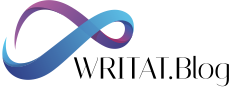Learn to Optimizing Your Book’s Metadata for Better Sales when publishing through writat.com
Metadata is the information about your book in the self publishing world. Earlier, when the internet was not available, metadata was used by librarians and booksellers to locate a book quickly.
This contains information such as a book’s ISBN, title, and author. However, as technology progressed and digitization took hold, a book’s metadata came to include more information than simply these. Metadata now contains information that informs potential readers about the contents of a book.
There are two types of metadata: enhanced metadata and core metadata. While the latter contains standard information such as a book’s title, price, category, ISBN, and author name. The former contains marketing-related material such as the book’s description, blurb, reviews, quotes, author bios and sample chapters.
Now, to successfully advertise our book on eCommerce websites and have it appear in search results, we must take advantage of improved metadata’s potential. However, in addition to the usage of enhanced information, we must also supply correct facts on core metadata.
How to Optimize Metadata?
Let’s take a moment to relax and confirm that optimizing your book’s metadata does not require you to be a technical specialist. All you need is some common sense and an understanding of your market. If you are a self publishing author then you should know how to optimize the metadata to increase your sales.
The first step in optimizing your book is to start with keywords research.
Keyword Research
Keywords, as we all know, are search phrases that people use to find specific information. At this step of the optimization process, our objective is to identify keywords, add them in the relevant metadata section, offer as much information about our book as possible, and rank well in search results. So, depending on the genre of your book, search for keywords those customers are most likely to use to locate it.
Suppose you’re writing a self-help book on overcoming anger issues, for example. In that case, you’ll need to include keywords like overcoming anger issues, anger issues books, books about coping with anger issues, self-help books for anger issues, books for individuals with anger issues, and so on.
Remember to select a long-tail keyword (one that is not limited to one word) while conducting keyword research because consumers seldom search for books using only one phrase.
Also, remember that if you’re using more than two phrases for keywords, make sure they’re in the most logical sequence possible. Books on coping with depression, for example, make more sense than books on dealing with depression.
You may also use Google Analytics to learn about new keywords that people use to find new books. For search engines to properly track and show your book, you should naturally employ the keywords you have gathered in the description part of your book within the first 50 to 100 words. The description should provide the most relevant facts about your book that will be useful to customers. To target a wide range of searchers, compile a list of keywords on an excel sheet and change them often.
You may tailor the title of your book based on the keywords you choose for the most outstanding results. However, if your book’s title is one of your primary keywords (for example, if the keyword Overcoming depression is in your title or subtitle), your book’s exposure will skyrocket. So, when titling your book, think about the keywords people use to find it and make sure it meets their needs.
What You Shouldn’t Include
Some terms should not be used in your keywords, notwithstanding what can be included. For example, never use superlative adjectives like best, most effective, or similar phrases since consumers no longer click on self-proclaimed books.
Also, avoid using terms like “discounted pricing,” “on sale,” “latest,” “recent,” and others that provide just transitory information about your book. Similarly, avoid misspelling terms and double-check your material for appropriate grammar and punctuation, as well as compliance with global standards for acronyms and technical specifications.
Categorize it Right
The way you categorize your book may make a significant impact on its sales. For example, it doesn’t make sense to put a thriller with romance within the romance fiction category. Because the readers of your novels are individuals who enjoy murder mysteries, you will miss out on your target audience. Fans of romance books may be disappointed by your incorrectly classified book, and fans of murder-mystery novels will be unable to locate it at all. You must correctly classify it to reach your audience.
Final Thoughts
When you concentrate on the metadata for your book, you’re simply increasing the efficacy of your other social media book marketing methods. Self Publishing Adjusted metadata will increase the exposure of your book and expand the possibilities of it being sold. This may look not very easy for the newbie authors. But if you figure out how to accomplish it and use book optimization techniques, the results will be spectacular. So go ahead and put it into action right now.
When you buy a self publishing package and publish your book through Writat.com our team of specialist optimize the metadata of the book carefully so that it gets the maximum exposure online. You can view the Self Publishing packages here.





